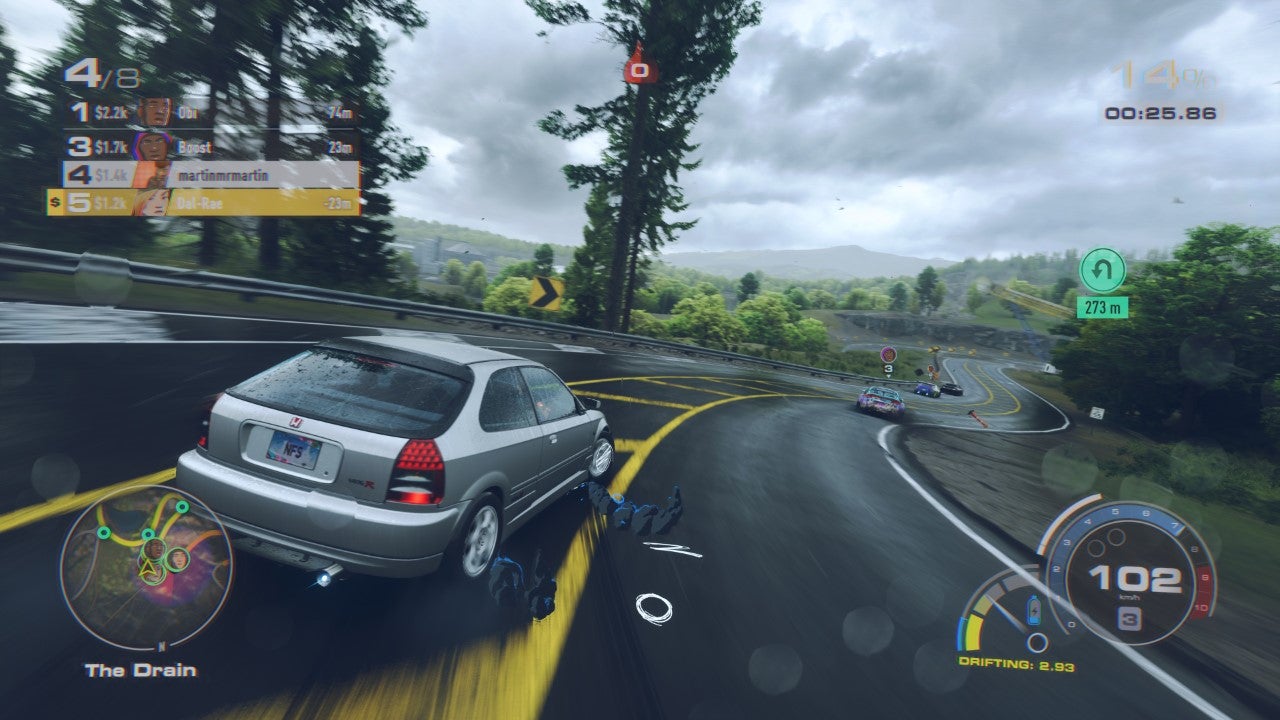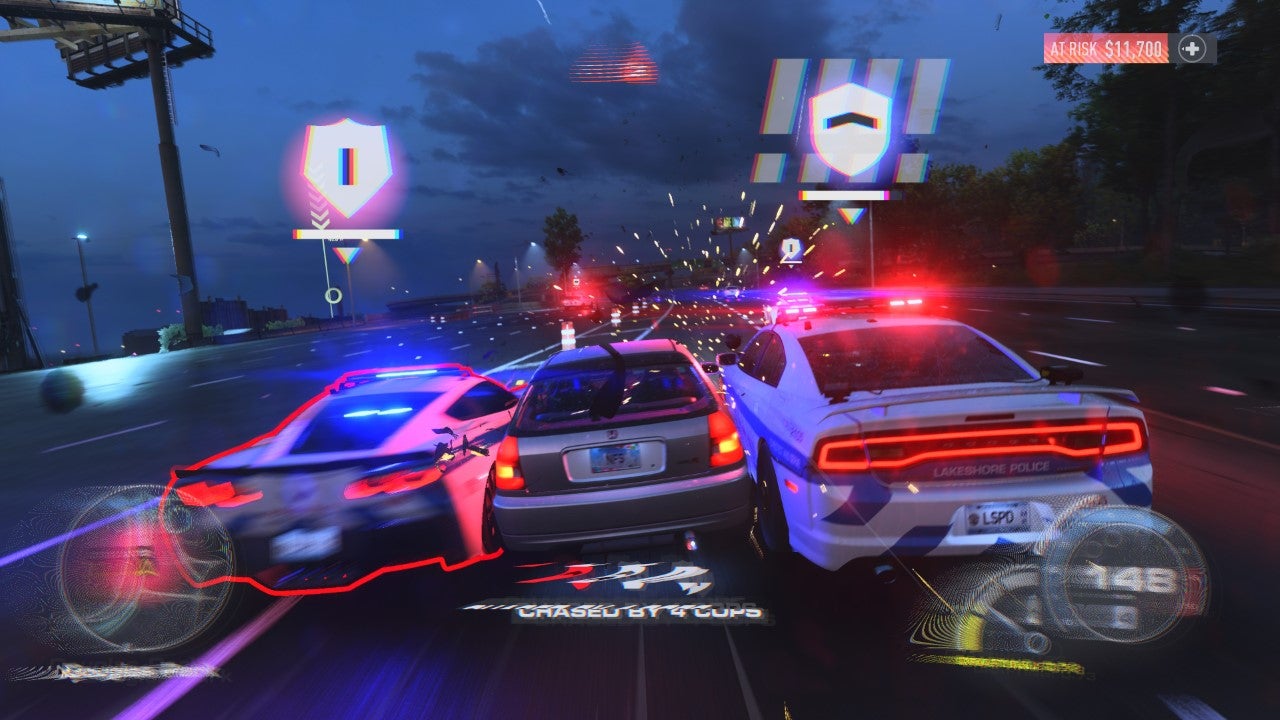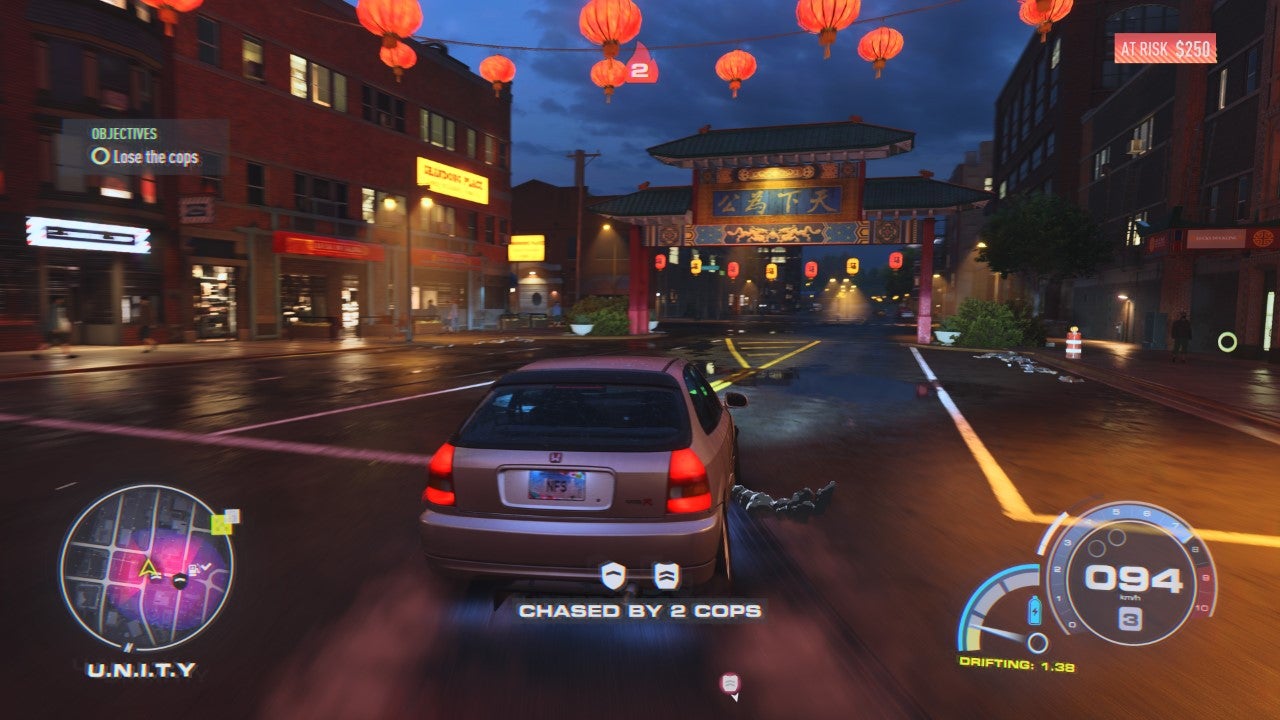The thing is, I’d understand if you weren’t aware: when it came out back in 2019 Need for Speed Heat received such a muted reception it barely registered beyond the series’ faithful. It’s a pleasant surprise, then, that it’s got a sequel in Need for Speed: Unbound, an open world racer that builds upon the foundations of Heat, and that heralds the return of the legendary Criterion as a lead studio. And it’s frustrating that EA seems to have doubled down on doing nothing to promote its latest Need for Speed, because Unbound is more than a return to form. It’s the best Need for Speed in a generation, and certainly the finest since Criterion began its first stint on the series with the sublime Hot Pursuit. It’s so good, in fact, that I don’t think it’s too far off giving the all-conquering Forza Horizon a run for its money. They’re two very different series, of course, but it’s in the differences between Need for Speed Unbound and something like Forza Horizon 5 that you’ll find what makes this game so special. In Horizon it can feel like you only need to drive 100 yards down the road to be showered with trinkets and new toys; in Need for Speed: Unbound after a dozen hours I still only had a single ride, and could lose an entire evening running events in order to afford a new air filter. It’s miserly, but it also might be Need for Speed: Unbound’s masterstroke. Unbound leans heavily into its underground racing fiction, to the point that it defines the single-player campaign that runs, if you see it through to the grand final, for well over 30 hours. There’s some light framing (after a lengthy prologue) with a tale of betrayal, double-crossing and ultimate redemption, but that’s besides the point. What’s really important is how Unbound doubles down on the journey of you and your car as you force more horses under the bonnet and strap on a turbo or two. There’s a fascinating knot of systems that support all this. The campaign takes place over four weeks, each of them climaxing in a special event that builds all the way up to the grand final. By day you can run events that gradually escalate the level of police attention you receive, which then carries over into the night when patrols are denser and fiercer - and you can’t bank your earnings until you make it to a safehouse without any police on your tail. It’s a rhythm that pushes you more towards exploring the open world, triggering speed traps for a small prize or tracking down billboards to smash through. Unbound’s open world proves to be pretty compelling, too. The visuals help - unlike its predecessors this is a 60fps racer, with the decision to cut last-gen versions clearly paying off - as does the styling, with colourful anime swoops and lines accompanying your action, while your avatar (which can be completely customised in a surprisingly broad range of fits) has a cel-shaded look. Upon first reveal I thought it might all be off putting, but come the final product not only does it look awesome I also found myself wishing it wasn’t quite so restrained. Lakeshore itself is a playful riff on Chicago, and another Need for Speed backdrop where the roads always seem to be rain-slicked, and in which the cars always appear to be sweating. There’s a bustling downtown with busy streets criss-crossing under elevated train tracks which host urban sprints that could have been lifted from Project Gotham Racing; out in the suburbs and beyond there are long winding roads that stretch up the hills and provide carefree blasts reminiscent of Criterion’s wonderful Hot Pursuit. I loved Hot Pursuit, partly because if you squinted you could pretend to be playing the OutRun successor we’ve been waiting all these years for. Unbound isn’t quite the better game - it lacks the simple elegance in design and its handling, while its car combat isn’t quite as satisfying - but it’s most definitely a superior Need for Speed game than Criterion’s prior efforts, going all in on the fantasy of tricking out a simple ride until it gobbles up tarmac and spits out flames. That the journey you take your starter car on is so protracted only makes it more meaningful. Be warned, though, that Need for Speed: Unbound treats you mean. Wins aren’t guaranteed. Neither, for that matter, is winning back the money you have to cough up in order to enter each event - and often the margins are minimal. It can be frustrating, or it can make the relationship between you and your ride flourish. The Honda Civic I’ve doggedly carried through to the endgame is a virtual car I’ve now become deeply attached to; every time I drive it I can feel the hours I’ve poured into it under my thumbs, and can see the results of the late nights spent grinding events so I could afford a tasteful purple neon underglow. I’ve come to know its foibles just as well as any real-life car I’ve owned. Customisation in Need for Speed: Unbound runs deep. You can flare wheel arches, stiffen suspension and strap on some slick new boots (and like Heat, with which Unbound shares so much DNA, you can even customise the timbre and bark of your exhaust note to a satisfyingly ludicrous granularity). You can even drop a 300bhp flat six into a Civic, which of course I did because I want only the best for my humble Honda, and every tweak you make has an impact. You can feel the extra horses, sure, but also the tweaks you make that push your car between the axis of grip or drift handling make themselves known. The drifting, though, doesn’t quite satisfy as much as Criterion’s racers in their pomp - it took me a dozen hours to acclimatise to it all, which speaks to the depths but also to the fact it’s not quite as immediate a thrill as before. Unbound is not quite perfect in other small ways too. Police AI is fine when you’re simply cruising around with no heat - and indeed there are some neat systems that help you avoid being spotted as you use the minimap in what amounts to an automotive game of Pac-Man - but when things get noisy cop cars often lose their heads. I’d love a bigger, broader car list, though maybe I’m just sore as a Toyota fanboy who’s been robbed of the chance of doing unspeakable things to an A70 Supra, as the world’s biggest marque is entirely absent. There are nips and tucks that could be made in a handful of places that could make this truly sing, and make it not just a great Need for Speed game but a great open world racer full stop. As it stands Unbound falls just short of that, but given how it delivers a Need for Speed experience that’s miles ahead of anything the franchise has offered in over a decade I’m not complaining. Here’s hoping EA’s bizarre handling of this fantastic game doesn’t dent its chances, and that Criterion gets to build upon its brilliant work for a sequel. Because then we really could have a Forza Horizon beater on our hands.



